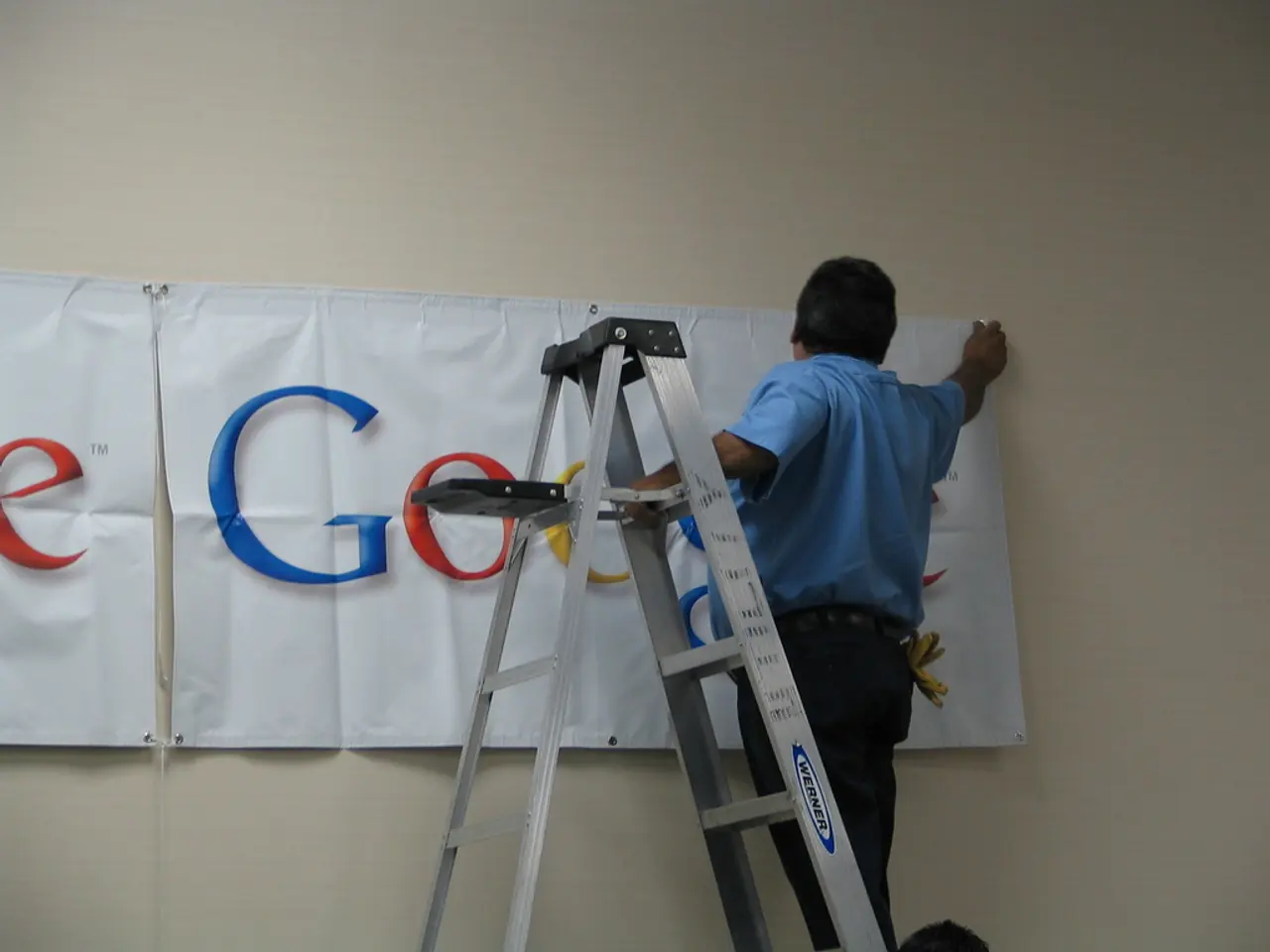Tech giant Google set to endorse European Union's AI ethical guidelines
Europe's AI Code of Practice: Industry Cautiously Commits, Raises Concerns
The European Union (EU) has introduced a voluntary AI Code of Practice, designed to align with the upcoming enforcement of the EU AI Act from August 2, 2025. Notable companies such as Google, OpenAI, Anthropic, and French AI firm Mistral have expressed their participation and commitment to the Code. However, industry responses reveal a mix of support and concerns about the regulatory approach.
Google, OpenAI, Anthropic, and Mistral have officially supported the Code, aiming to ensure compliance. Yet, they have raised concerns about its potential impact on innovation and competitiveness. These apprehensions stem from three main areas: legal uncertainties, the compromise-driven governance process, and the technically restrictive compliance requirements.
Legal uncertainties are a significant concern, with Meta, a tech company, refusing to sign the Code. Meta cited "legal uncertainties for model developers" and measures going "beyond the scope" of the AI Act, implying a shared worry among industry players about ambiguous or potentially overly burdensome compliance obligations that could slow innovation or disadvantage European AI developers.
The Code's governance process has also raised concerns due to its corporate compromise. Civil society organizations, including ARTICLE 19, have documented that the Code's final version reflects a balance tilted toward corporate interests. This raises worries that the governance framework might prioritize speed and flexibility favoured by industry at the expense of accountability and risk mitigation.
The technically restrictive compliance requirements are another area of concern. For instance, the Code sets clear compliance criteria using metrics like 10^23 floating-point operations during training. Companies worry that these strict thresholds and ensuing obligations could limit flexibility and competitiveness in AI model development and deployment in Europe.
Google's President, Kent Walker, has emphasized the importance of prompt and widespread deployment of AI. In a blog post, he expressed hope that the Code will promote European citizens' and businesses' access to secure, first-rate AI tools. However, he also expressed concern that the AI Act and Code may slow down Europe's development and deployment of AI.
In addition to Google, Microsoft is expected to sign the EU's AI code of practice, as reported by Reuters. The AI Act, which the code outlines guidelines for, comes into force next month. The EU's AI code of practice includes provisions for legal responsibilities and copyright protections for creators.
Despite these concerns, the EU's AI code of practice is voluntary and not legally binding. This means that companies can choose whether or not to adhere to the guidelines, although compliance may offer increased legal certainty and reduced administrative obligations for AI model providers.
Google, a company behind the Gemini AI chatbot, has announced it will sign the EU's AI code of practice. The outcome of these industry concerns and the impact on Europe's AI sector will be closely watched in the coming months.
Sources: 1. TechCrunch 2. The Verge 3. Reuters 4. Meta Blog 5. ARTICLE 19
- The European engagement with artificial intelligence (AI) extends beyond the AI Code of Practice, as Google, Microsoft, and others aim to ensure compliance, yet express concerns about the regulatory approach's potential impact on business, finance, and technology, particularly in areas such as innovation, competitiveness, legal uncertainties, compromise-driven governance, and technically restrictive compliance requirements.
- Politics and policy-and-legislation take center stage as the European Union's AI Act is set to come into force next month, drawing attention from civil society organizations like ARTICLE 19, which have documented concerns about the Code's governance process favoring corporate interests over accountability and risk mitigation.
- In the general news landscape, discussions abound on the implications of the European AI Code of Practice for AI developers, tech companies, and various industries, with many keeping a close eye on the AI sector's development in Europe, as companies like Google make their commitments while raising concerns about the potential impact on their competitiveness.




